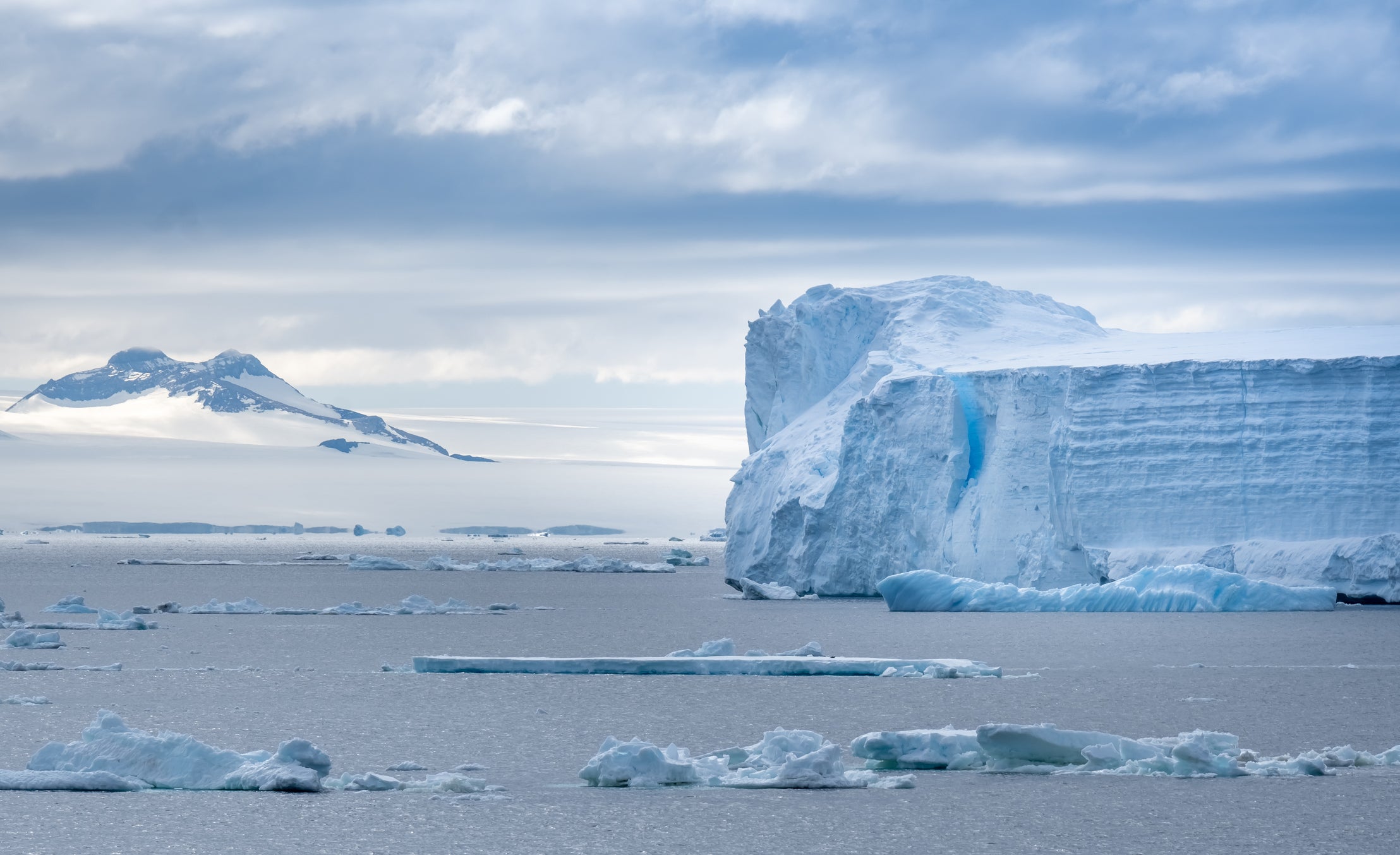Catastrophic collapse of West Antarctic ice sheet ‘avoidable’ if warming stays below 2C
If temperatures keep rising, we are on course for devastating sea level rises

Of the world’s three major ice sheets, the West Antarctic ice sheet is considered the most vulnerable to collapse, a process which would raise global sea levels by 3.2 metres.
But a rapid collapse of the ice sheet – which would have catastrophic impacts around the world – could be avoided if countries commit to major cuts to the greenhouse gas emissions which are warming our planet, a new study suggests.
Just two weeks ahead of the UN’s Cop26 climate summit the experts from New Zealand’s GNS Science and Te Herenga Waka – Victoria University of Wellington, said the decisions we make this decade could be felt for centuries.
Rising sea levels are already taking a major economic toll on countries, and are increasingly affecting around 700 million people who live in low-lying coastal areas at greatest risk of flooding.
It is already known that the ice sheet is melting – but it’s a question of how long this process takes. Existing research on the vulnerability of the ice sheet has identified a number of risk factors which affect the rate of melting, but the new study quantifies these risks, and the team has used various emissions scenarios to model outcomes.
They said that this approach represents a new way of understanding Antarctic Ice Sheet change and its potential to raise sea level by multiple metres and also paves the way for clearer projections of the future of the Antarctic Ice Sheet.
They found that while we may not see the total impacts for centuries to come, our current decisions will eventually have a profound effect.
The team produced projections based on both a low-emissions scenario, in which global carbon emissions were reduced quickly over the next few decades, and a high-emissions scenario in which emissions kept increasing to the end of the century.
“There was substantial overlap in plausible ice sheet contributions to sea level for the two emissions scenarios in this century” saidGNS Science’s Dr Dan Lowry.
But by 2300, the different outcomes of the different emissions scenarios were crystal clear.
He said: “Under the high emissions scenario, the rate of sea level rise was double what it was under the low emissions scenario – with the Antarctic Ice Sheet contributing over 1.5m more to global sea level in the high emissions scenario, due to the collapse of the West Antarctic Ice Sheet.”
The scientists said the earliest warning sign of a future with a multi-metre Antarctic contribution to sea level rise is widespread thinning of Antarctica’s Ross and Ronne-Filchner ice shelves.
“These shelves hold back the land-based ice, but as they thin and break off, this resistance weakens, allowing land-based ice to more easily flow into the ocean” Dr Lowry said.
“Without these shelves, the West Antarctic Ice Sheet collapses”.
In a high emissions scenario, this widespread ice shelf thinning would occur within the next few decades.
However, under a low emissions scenario, the thinning does not occur at all and the majority of the West Antarctic Ice Sheet would remain intact.
“Our results highlight the urgency of reducing carbon emissions and the long-term consequences of failing to do so” cautions Dr Lowry.
“Even if we meet the Paris Agreement target, the long memory of Antarctica means we should still expect to see melting of the Antarctic Ice Sheet for centuries and millennia to come.
“To avoid the worst impact on coastal communities around the world, planners and policy makers need to develop meaningful adaptation strategies and evaluate mitigation strategies for the ongoing threat of sea level rise”.
The research is published in the journal Nature.
Join our commenting forum
Join thought-provoking conversations, follow other Independent readers and see their replies
Comments
Bookmark popover
Removed from bookmarks